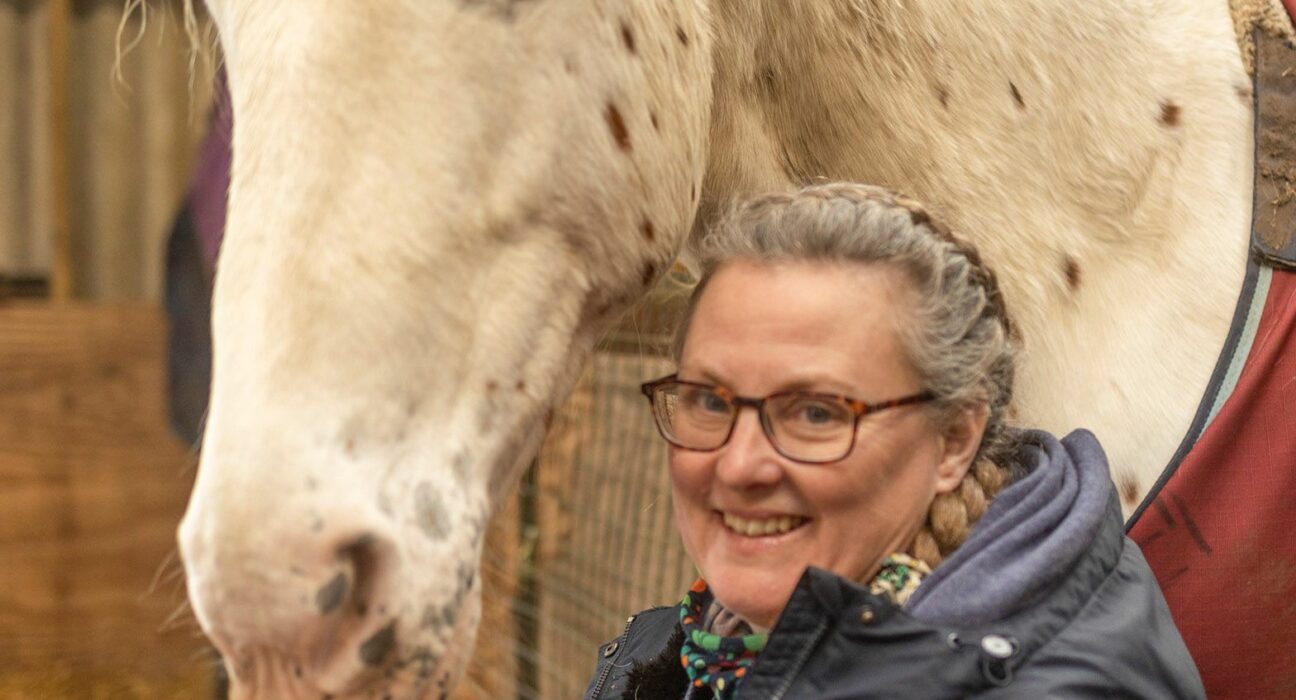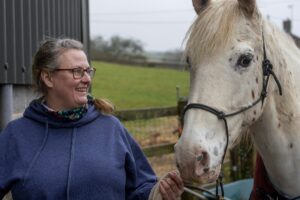
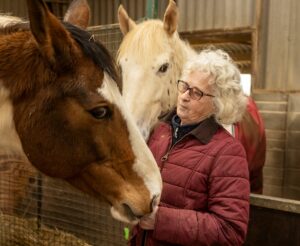
“It’s about listening to the horses,” says Vendela Eversden of her daughter Rebecca Maslen’s new enterprise, helping anxious young people learn coping strategies using equine assisted learning (EAL).
Mum of three Rebecca has loved horses from an early age, having been inspired by her mum’s love for the creatures.
Various work in schools, and in another role helping parents of SEND children get the help they need and as a parent herself gave her an urge to use all of her experiences in life to make a difference to autistic young people struggling to find coping strategies.
She also works with young people with anxiety and related conditions.
During lockdown she applied for planning permission to use her land and stables at Notton, just outside Maiden Newton, for therapeutic sessions.
Sessions will be open to physically disabled people too, once the plans are executed, with a new track laid down for the horses, a kitchen and a disabled toilet.
Rebecca and her mum have eight horses there. Some are much loved family pets, such as Cali, an 11-year-old horse that technically belongs to one of her daughters but is Rebecca’s own favourite. Three are on loan, being assessed for their suitability for EAL.
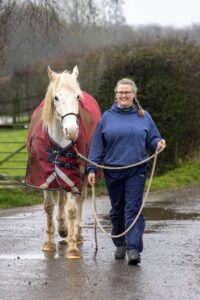
Equine assisted learning is based on ‘natural horsemanship’, which is practised by many people, albeit in differing ways but essentially involves reading a horse’s body language to understand what they are ‘saying’.
Through that observation, interaction and deep concentration a sense of calm is instilled in both learner and horse. Learning takes place without pupils even being aware of it.
There’s very little talking, and no judging. It’s space to breathe for many of the young people, who find busy, noisy modern life and education frazzling.
“Our horses can say no,” says Vendela. “They are willing partners when they are listened to.”
Rebecca said: “We can get young people in here who are very high energy, very stressed and some of our horses sense that – horses are wary of high energy.
“They don’t get frightened by it, but they will refuse to take part.
“We use that experience to work on managing our emotions and energy so they can work safely with the horses. It’s a gentle, person-centred, learner-led approach.
“What we do is undertake a range of activities which give learners the space and time to communicate. It’s not about getting them back into mainstream learning. It’s more about giving them techniques and strategies they can use to learn.”
Young people attending Notton Equine Assisted Learning (CIC) are currently offered many different activities, such as grooming and equine aromatherapy (one of the herd is particularly partial to peppermint).
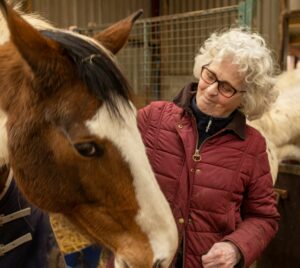
They get to work with the horses, feed them, take them for a walk, or… just sit with them, perhaps observing their behaviour.
“We have lesson plans,” says Rebecca.
“But they aren’t set in stone.
“We do adapt as the lesson goes on and find what works for each individual young person.
“It’s an amazing therapeutic approach.”
Rebecca and Vendela have kept their horses in Notton for 26 years. But the pandemic made Rebecca re-evaluate what she wanted to do in her work life, and she set about starting a qualification in EAL. She is now affiliated to EAQ, and Notton is an approved centre, meaning she has specialist insurance, DBS checked staff, safeguarding and first aid qualifications. She is part of a network of EAQ centres, where they share their knowledge and experience.
She has been holding sessions to populate her course portfolio and is now inviting people with young people who could benefit from the sessions to contact her.
Free taster sessions are on offer, where you can look around and decide if it’s right for you.
Rebecca wants to mainly do one-to-one sessions because she finds more progress can be made that way. “It’s about communication techniques,” she said. “One on one gives you the chance to really focus on the language you use.”
“The learning just kind of happens naturally,” says Rebecca.
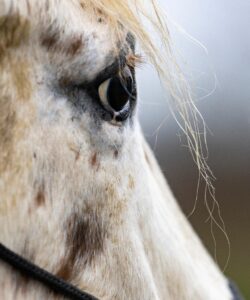
“There are no questions, no expectations so learners can observe the herd’s interaction in a calm, natural way.”
Find Notton EAL on Facebook or call 07810 488023 or email rebecca@nottoneal.co.uk.




